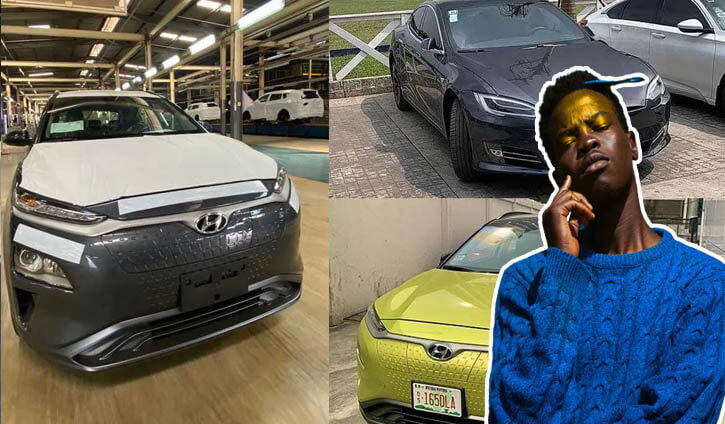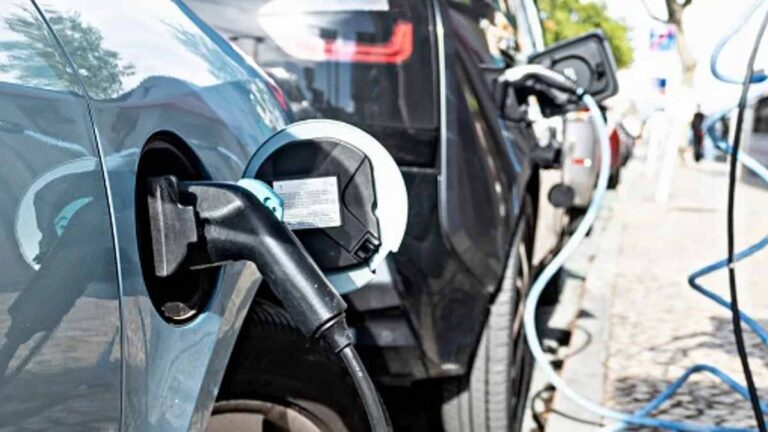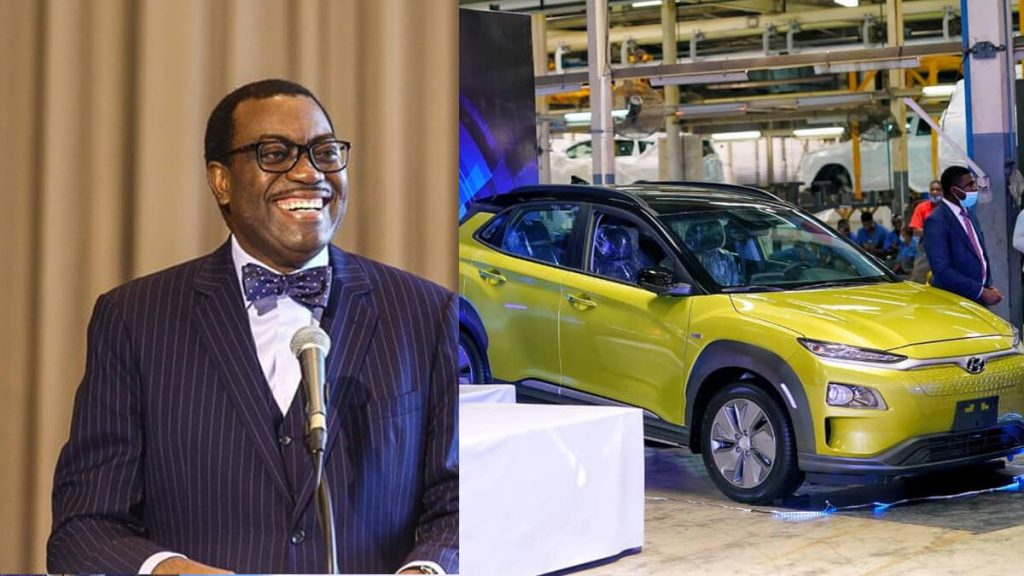“Our ultimate goal is to create the Tesla of Africa.” These were the words spoken by Rupani Sanjay, the Director of Sales and Marketing at JET Motor Company, a Nigerian automobile company, during an interview with Techpoint Africa in 2020. The company had announced raising $9 million to build Africa’s first all-electric vehicle.
In June of 2021, the company confidently announced its groundbreaking partnership with Nigerian logistics giant, GIG Logistics (GIGL), to successfully launch JET EV – Nigeria’s first-ever electric cargo van.
JET Motor Company was founded in 2018 by Chidi Ajaere, Chairman of GIG Group, along with a team of automobile experts. Its mission is to boldly lead Africa into a new era of mobility!
The first fully electric vehicle made in Nigeria, JET EV, has been launched. It produces zero emissions while on the road.
LETS TALK ABOUT THE JET EV
After three years of research and development, the company has finally achieved its goal of producing electric vehicles from scratch.
Ebuka Uchendu, Technical Lead at JET EV, revealed that the vehicle is capable of travelling up to 300km on a full charge, but can typically cover a range of 260-280km. The EV has fewer engine parts, reducing maintenance costs by almost 70%. Additionally, operational costs, such as refuelling, are significantly decreased…
“If you compare the cost of fueling a vehicle for a distance of 250km, you will notice that using an electric vehicle (EV) is cheaper to maintain. For instance, by looking at the current billing charges from electric companies, you can see that you can fully charge an EV for ₦6,000, whereas fueling a conventional vehicle in Nigeria for the same distance could cost between ₦10,000 to ₦15,000,” explains Uchendu…
The vehicle’s high-capacity lithium-ion phosphate battery is rated at 107.6kWh, and it has a traction motor with a larger torque of 950Nm. As a result, the EV can go from 0-100km/h in under 20 seconds…
It is equipped with a supercharger capable of fully charging a dead 107.6kWh SOC (state of charge) in less than two hours…
The African experience
Ajaere has mentioned that there are concerns regarding the high cost of entry and inconsistent power supply. Their partnership with GIGL is aimed at targeting fleet operators such as transport companies like ABC and GIG Mobility, as well as schools and governments. Fleet operators tend to incur significant losses over time. Therefore, despite the high initial cost of entry, it can be beneficial for fleet operators who have multiple vehicles to maintain and pay for fuel.
“Electric vehicles (EVs) can significantly reduce the cost of maintenance since they do not rely on petroleum and have almost zero maintenance requirements. This means that in the long and short run, EVs are a better option. However, it is important to note that the initial cost of purchasing an EV is higher than that of a conventional vehicle,” concludes Ajaere.
Each fleet operator has a choice of alternative power sources, such as solar, wind, and diesel, to address the power supply issue.
“I am a fleet operator with 20 fuel-powered vehicles,” says Ajaere, “I have to fill them up with petrol. However, if I have a generator like 100KVA, I can use it to power and charge my fleet. Even if I am emitting CO2 through my diesel-powered engine, it is only from one engine. I am not contributing to the pollution caused by 20 vehicles on the road. The idea is that any power source can be used to charge a vehicle.”
“We’re building charging stations for partners as they acquire fleets to meet their mobility needs.”.”
As JET attracts more partners and funding from VCs, the long-term goal is to build solar or wind-powered stations.
There are various players in the African EV industry. In addition to JET in Nigeria, Siltech manufactures electric bikes, patrol vehicles, and utility vehicles for the agricultural sector.
In Kenya, ARC Ride has launched two and three-wheelers, which are being used by companies like Uber Eats and Kibanda Top Up for deliveries.
In Rwanda, Ampersand has introduced a fleet of electric motorcycle taxis. which functions as an Uber-like service while also maintaining ownership of the vehicles.
Kiira Motors, which has been producing electric buses and cars since 2011, is already operating on the roads of Uganda.
Despite Africa’s progress, underrepresentation persists. JET Motor’s vehicles are designed for bad roads and humidity, positioning the company to make a change.
Nigeria’s automotive industry, like the fintech space, has experienced some interesting policies. Ajaere once again shares his thoughts on the policy outlook in Africa.
You can have great ideas, but every great company has funding and good policies that incentivize them to make these vehicles easily accessible.
“With favourable policies in countries like Ghana and Nigeria, we should be able to export these vehicles not only within Africa but across the shores of Africa within the decade or next,” Ajaere concludes.
The state of Electric Vehicles in Africa
The African continent seems to have been left behind by the rest of the world in the multiple innovations and their adoption, and this has also been the case with the coming of electric vehicles.
undeniably, electric vehicles are a great innovation and they are one of the best things to happen to the world, as it supports the mission to make the world greener. However, the question to be answered is, can electric vehicles be adopted in the African continent?
First of all, for electric vehicles to work, there needs to be stable, constant, reliable electricity, and Africa has a bad record of that.
Africa is a continent where only 10 per cent of the population has access to the electrical grid and some of the areas covered by the electrical grid still have unreliable power.
Not only is electricity not constant, but it is also very expensive, as electricity costs in Africa appear to be one of the highest in the world (about household income). So, electric vehicles hardly stand a chance at this point
While electric vehicles have more advantages than gasoline vehicles, they are very expensive, as it still behind in mass production which is supposed to help them in cost reduction.
If the cost of EVs doesn’t become nearly as affordable as fossil fuel-powered vehicles, then its adoption on the continent could remain a thing of imagination
It’s important to note that with all these stated challenges, measures have been put into the adoption of electric vehicles as they are already being sold in Africa.
Can Electric Vehicles be a blessing to Africa?

Electric vehicles would do a lot of good to the African continent, just like they could do to the rest of the world.
90 per cent of Africa’s transportation is by road, which leads to total dependency on fuels, and the pollution problems this brings are huge. However, electric cars, as an alternative for transportation, would be a great relief to the continent of its fossil fuel-powered transport dependency and perhaps help take away the cost burden on fuel expenses.
Electric vehicles, if adopted, would increase the quality of air, and by extension, enhance the quality of life in African cities as there would be reduced gas emissions.
Globally, the electric vehicle market is already growing at an exponential rate, having close to 5 million vehicles sold globally as of 2019.
It was predicted by some experts that by 2040, 54 per cent of new global car sales will be electric. Recently, Britain announced their plan to ban new petrol vehicles by 2030 and they set a target of creating 250,000 new jobs in the green revolution.
Africa has a long way to go in the adoption of electric vehicles, but progress has begun.
Have 1 million naira and above to Buy or Sell Cars In Nigeria? Check carlots.ng
All rights reserved. Reproduction, publication, broadcasting, rewriting, or redistribution of this material and other digital content on carmart.ng is strictly prohibited without prior express written permission from Carmart Nigeria - Contact: [email protected]




